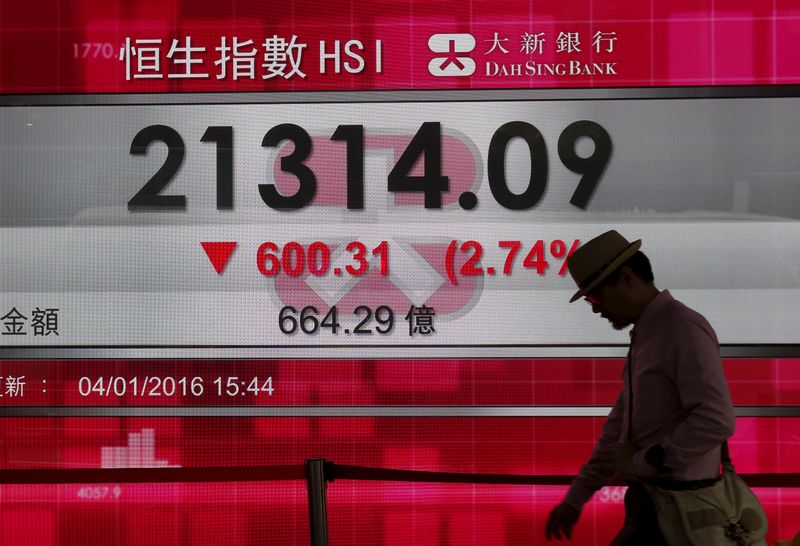Asian stocks dip on pre-CPI angst, Hong Kong slides on Tencent losses
2023.04.12 00:19

© Reuters.
By Ambar Warrick
Investing.com– Most Asian stock markets traded in a flat-to-low range on Wednesday amid growing caution ahead of key U.S. inflation data, with Hong Kong’s Hang Seng index losing the most on steep losses in heavyweight Tencent.
The index fell 0.6%, weighed down largely by a 4% drop in internet giant Tencent Holdings Ltd (HK:).
Major shareholder Prosus (AS:) said it deposited 96 million Tencent shares, worth about $4.4 billion, into the Hong Kong Central Clearing and Settlement System this week. Such a move usually heralds a sale of shares, with Prosus stating that the move is to finance a share repurchase program.
Losses in Tencent spilled over to other technology stocks, with majors Alibaba Group Holding Ltd (HK:) (NYSE:) and Baidu Inc (HK:) (NASDAQ:) losing about 2% each.
Electric carmaker BYD Co Ltd (HK:) fell 1.9% after Warren Buffett’s Berkshire Hathaway Inc (NYSE:) further trimmed its stake in the firm, selling about 2.48 million shares.
Broader Asian markets were largely muted, as markets hunkered down ahead of key U.S. (CPI) inflation data due later in the day, which is likely to factor into the Federal Reserve’s plans to raise interest rates.
China’s and indexes rose marginally, but were still reeling from data released this week, which points to a staggered economic recovery in the country.
Japan’s index added 0.6%, extending strong gains from Tuesday after Warren Buffett said he was considering more investments in local stocks.
Data also showed that inflation in Japan eased for a second consecutive month in March, albeit at a slower than expected pace.
India’s and indexes were marginally higher ahead of local CPI data due later in the day, which is expected to show that inflation eased substantially in March.
Focus is also on the minutes of the Fed’s March meeting, due later in the day, for more cues on monetary policy, although markets have begun speculating that the central bank has limited headroom to keep hiking rates.
While a potential pause in rate hikes bodes well for Asian markets, an ensuing U.S. recession could further erode appetite for risk-driven assets. Minneapolis Fed President Neel Kashkari warned that higher interest rates and slower lending could this year.








